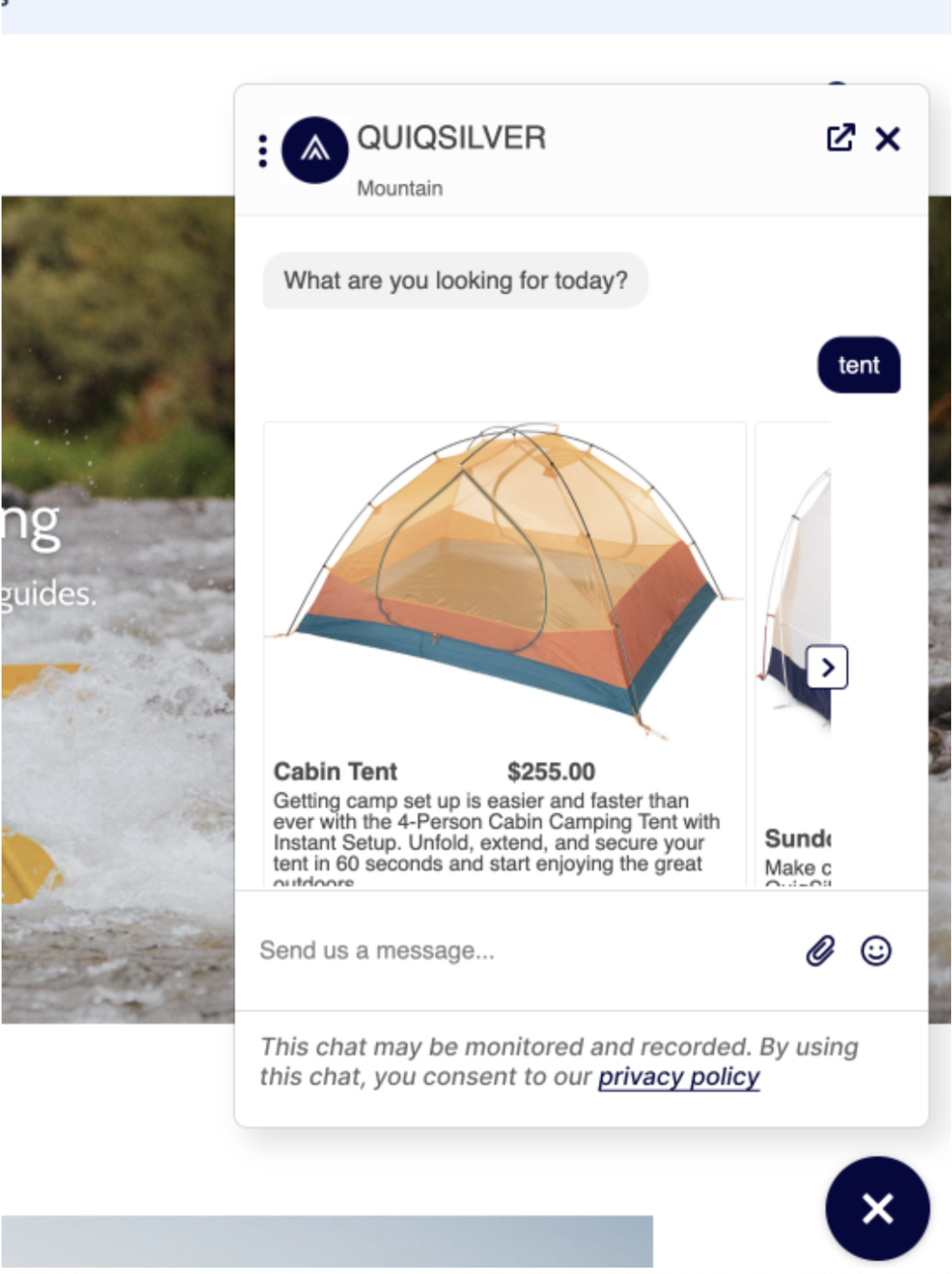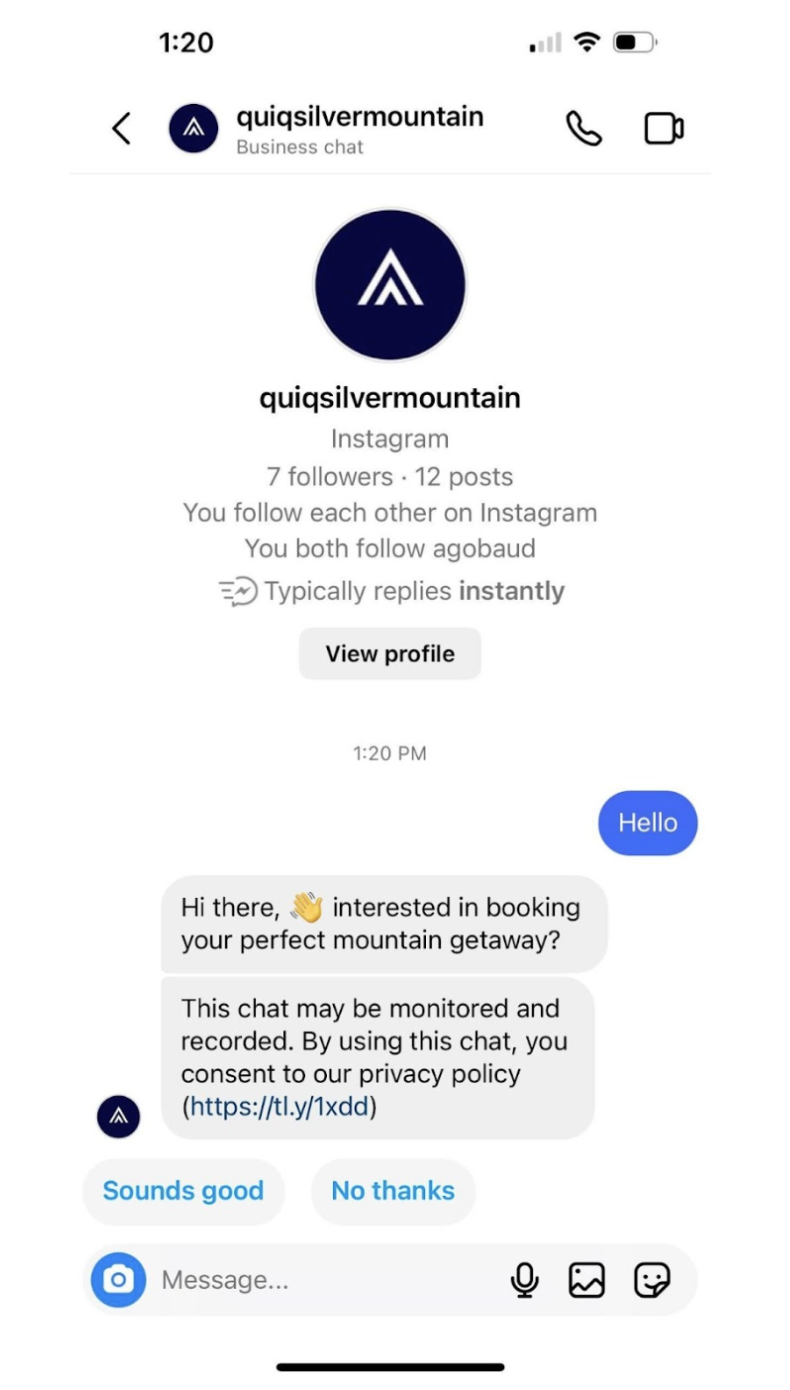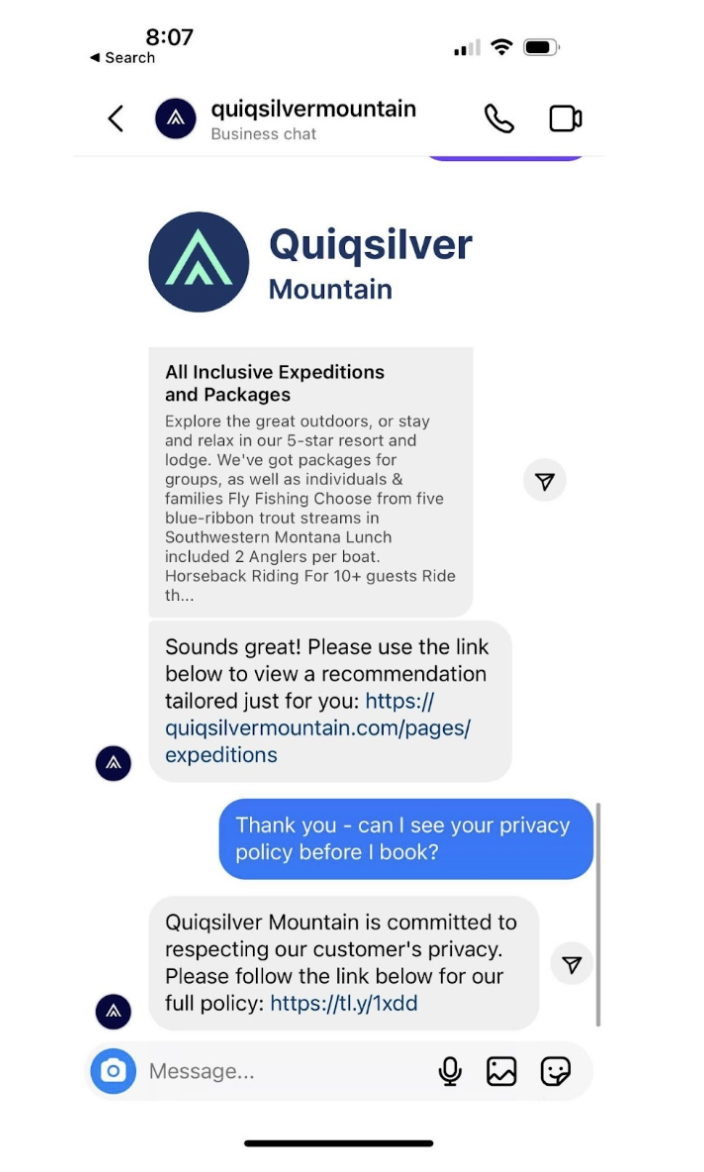Privacy Best Practices: The Importance of Customer Notice and Consent in Messaging
Overview
Providing user notice and obtaining user consent at the start of any conversation, be it with an AI agent or human agent, is crucial, from both a legal and customer trust perspective. Below, Quiq will highlight some best practices for ensuring notice and consent across the ever-evolving messaging landscape.
AI Disclosure and Third-Party Technology
In addition to general privacy consent, it is best practice, and increasingly a regulatory requirement, to explicitly inform users when they are interacting with an AI agent or chatbot rather than a human agent. Quiq recommends configuring your agent to identify itself as AI, disclose that the interaction may be monitored and recorded, get consent to start the conversation, and direct the user to your privacy policy for more information. Your privacy policy should include how data is processed by third-party technology providers, including Quiq.
Persistent Privacy Policy
For customers who have deployed web chat, Quiq provides the option to add a persistent footer that can display relevant customer privacy and consent information, as well as links to additional detailed customer policies:

Alternatively, a privacy message can be added into the chat header as well:

The important thing to take away from both examples above, is that your users can always quickly and easily access relevant privacy information, regardless of where they are in their web chat conversation.
Get Consent at the Beginning of the Conversation
If your users are engaging in a channel like SMS, Apple Messages for Business, or any number of rich messaging channels, whether you are using AI or human agents, and where you do not have control of the header or footer of the chat, or if you’d like to cover all your bases from a notice and consent best practices standpoint in addition to the chat disclosure, a notice disclaimer and explicit opt-in can be sent as part of the first message to your users:

With this approach, you’re ensuring that your user's are giving explicit opt-in before beginning a conversation, as well as providing a privacy disclaimer upfront when one cannot be added to the header or footer of your chat.
Provide On Demand Access
It is plausible that users may consent to the explicit opt-in at the beginning of a conversation, and then wish to revisit the privacy policy again during the course of their conversation. In addition to the persistent privacy policy approach outlined above, brands can also configure their assistant to respond to privacy requests during the course of a conversation:

While Quiq recommends the best practices outlined above, it is important to note that local laws and regulations, along with the requirements stipulated by your internal legal or brand teams, may supersede or complement the aforementioned guidance. Therefore, it is strongly advised that you seek guidance from your internal legal teams to determine the most suitable approach for your company.
Example Message
When using AI for either messaging or voice, Quiq recommends the following notice and consent.
“Hi, I’m an AI agent with [insert Customer name]. Before we begin, I need to inform you about call message recording and data sharing. This call message will use third party service providers, including Quiq, Inc., (and list others if applicable) and your call message will be recorded and shared with the third party service providers for quality assurance, training purposes and to provide this chat voice service to help respond and resolve your request. The recording and any information you provide may be shared with the third party service providers who help us deliver customer support services. If you consent to having this call message recorded and your information shared as described, please continue with this chat voice call or respond “yes”; if you do not consent, please end this chat or voice call or respond “no.” You may visit our privacy policy (insert link for a chat) to learn more about how your information will be used by our third party service providers. You can still receive assistance through our website. Thank you.”
If you have any questions about the strategies outlined above, or would like to learn more, please reach out to your Account Manager.
Updated 3 months ago
